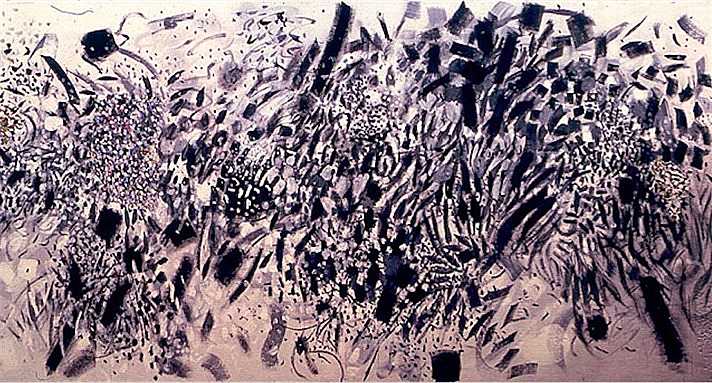Sexual Politics in the Colonial Context of Palestine
An Introduction
By: Aamer Ibraheem
(Originally published on Jadaliyya.com in Arabic)
Knowledge has long traveled across different geographies and cultures. This constant movement and creation of ideas and concepts offers us a lens through which to view ourselves and analyze our realities. Historically, ideologies either travel forcibly through the hegemonic powers of their creators, or arise as a response to those powers. Yet, in some rare cases knowledge can emerge independent of this reactionary dynamic. However, this notion of “traveling theory,” as Edward Said describes it[1], tends to be based on the violent clash between the knowledge created to control and the knowledge created to liberate. On this journey following the routes of knowledge, we must ask ourselves the question “how did we come to know what we know today?” We need to to examine the political, social, and economic factors affecting our bodies and the processes that allowed us to arrive at a specific type of knowledge while censoring others. The question then becomes “why this knowledge specifically?”
The second issue of “Sexual Politics in the Colonial Context of Palestine” comes as a part of alQaws’ project, which two years ago published its first issue titled “Sexual and Gender Politics.” The articles in this issue follow the ideas discussed in the Second Academic School for Sexual and Gender Diversity in September 2016. The Academic School is a three-day intellectual event organized every two years, where Palestinian activists and academics discuss sexual politics in the capitalist settler-colonial context in Palestine.
Sexual politics refer to the dialectical relationship between the dominant mechanisms of control and the socio-political resistance strategies challenging them. Particularly in the Palestinian context, we cannot ignore the power dynamics between the colonizing Israeli and the colonized Palestinian. This dialectic exists in parallel to the many paradoxes and binaries inherent in the attempt to hold onto a clear and consolidated Arab identity/culture opposing a Western colonial culture, including: holding onto an “authentic” cultural heritage while working towards change; a patriarchal culture clashing with feminist liberation; and hegemonic social, political, and religious norms and the struggle against them.These binaries and the interactions between them affect our daily lived realities. They inform our knowledge and values, as well as the way we practice our sexualities and perceive our bodies.
This issue of “Sexual Politics in the Colonial Context of Palestine” included five articles. In the first article, titled “Haifa’s Utopia and the Attempted Taming of Palestinian Bodies,” researcher Yara Sa’di takes us on a critical journey to Yafa Street in the Palestinian city of Haifa. She questions the architectural changes in the area, examining the dialectical relationship between the neo-liberal colonial planning of the space and our practices and movements within it. Sa’di explores the impact of this relationship on our individual and collective identities and memories by tracking the planning process and the ensuing changes. She also highlights the voices and attitudes of people who frequent this location, finally concluding by discussing the bodies and the performativity created in such a space. (Read in Arabic here)
In the second article, titled “Preserving the Meaning of Freedom.” Hala Marshood examines the notion of “freedom” in neo-liberal discourse. Marshood critiques this concept by exploring feminist practices in the Palestinian context, and the rising socio-political impact of neo-liberal discourse on the practice of sexuality. (Read in Arabic here)
The third article, titled “The Economy of Desire under Late Capitalism: Reading the American and Palestinian Contexts,” is written by Hadeel Badarni. The article centers economic analysis in the reading of sexuality under colonialism. Badarni examines the impact of capitalism on colonized Palestinian bodies. She first explores sexual identities in the capitalist context of the US, then using the same critical lens to observe the Palestinian models of sexuality and family within a colonial mode of production. With this approach, the author provides a critical feminist text that does not shy from delving into political economy and igniting the flames of this intellectual battleground. (Read in Arabic here)
In the fourth article “Palestinian Women’s Bodies: From Birthing Resistance to a Symbol for Colonial Penetration,” Maha Ibrahim critiques the perception and representation of Palestinian women’s bodies in the Palestinian political discourse during the first intifada. She highlights the dominant heteronormative discourse in Palestinian society during that period of time with the rise of religious discourse and its radical impact on national political discourse in Palestine. (Read in Arabic here).
The fifth and final article in this issue, written by Haneen Maikey and Beesan Ramadan, is titled “Ideologizing Sexual and Gender Violence within Progressive Circles in Palestine.” The article addresses forms of sexual and gender violence reproduced within the social and political discourses of “progressive” circles in Palestine. The authors, who are both activists in sexual and gender diversity movements, highlight several forms of violence and exclusion they have witnessed in the last decade against different sexual and gender identities and orientations. Two of the most common issues are the widespread use of the neo-liberal notion of “acceptance”, and the post-modernist discourse regarding “sub-identities”. The significance of analyzing the rise of these concepts comes from the need to challenge the roots of oppression in its many forms. The text aims to lay the groundwork for a mutual understanding of our collective struggle to decolonize our land, mind, and body. (Read in Arabic here)
[1] Edward Said, The World, the Text and the Critic (Cambridge: Harvard University Press, 1983), pp. 226-247.
